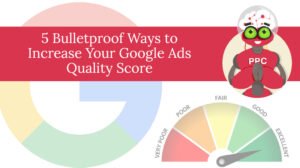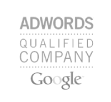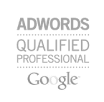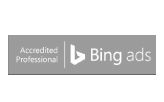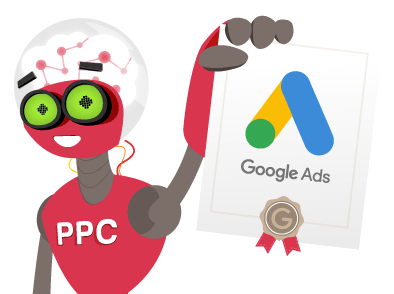When you're looking to hire a Google Ads expert, you'll be sold on services in a variety of different ways. And one of the most common is Google Ads certification.
You've likely seen a lot of companies and individuals displaying their Google Partner Badge with pride on their website, letting any prospective client know they have a base level knowledge of the Google Ads platform. That's not to say that shouldn't instill confidence. While it's true that anyone can receive a Google Ads certification, your skills and knowledge are put to the test in assessments that would be impossible to complete without taking the course.
For example, the Google Ads Search Certification requires that you know how to build and optimize campaigns according to Google's best practices.
Here's the problem. Google's definition of "mastery" is a paint-by-numbers formula based on overall data and generalized knowhow. If you're just starting out in the PPC game, or even if you're a seasoned pro who hasn't gotten around to it yet, Google Ads Certification is a necessity. Anyone shopping around for an expert should look at that as a bare minimum, and we in no way think it's smart to skip it altogether.
However, it's simply not enough. When you're investing in an expert, you should look past the Google Ads certification and consider whether or not the company or individual has experience in the following areas:
Running Actual Campaigns

This is number one. Without the experience of actually running a campaign and watching how changes affect performance, you're basing everything on the certification. With experience, you know the ways to optimize copy to boost conversions. You know when to reprioritize the budget to focus on specific channels or ad types. You know when it's time to stop and start fresh.
Some say PPC management is an art form. Maybe, but I also like to think of it as tending to a garden. If you don't know what you're doing, things die. If you don't tend to it often, things die. If you don't have the experience of growing plants and you're basing it all on an online course, you're going to have some trial and error. And that means things will die.
You have to start somewhere. That's absolutely true. So if you're looking for a hyper low budget PPC manager to just get the ball rolling, we encourage you to help an up-and-comer gain experience.
In fact, the most budget-friendly way to tackle a PPC campaign is to pay for the Google Skillshop training program and gain certification personally. At the very least, you'll have more insight into how your campaigns are going when you hire an experienced expert. Digital advertising is the future, so it's likely a worthwhile investment, whether leveraged directly or indirectly.
Solving Disapproval Issues

It's common for Google to disapprove an ad, and it can happen for a multitude of reasons. Where an expert comes in is knowing whether it was rejected because it needs to be changed or because it needs to be disputed.
An ad needs to be changed when Google has a valid issue with the copy or landing page. For example, it's against Google's terms of use to use a lead form when advertising a health product. But maybe you're using a lead form to promote a product that's not healthcare-related – through a company that Google recognizes as a healthcare brand. In that case, we'd contact support to dispute the disapproval.
But if we know it's a valid rejection, like making a guarantee they specify in their terms of use, we'd change up the copy and resubmit it for approval, not waste our times disputing it.
Further, experience helps PPC managers anticipate potential rejections and avoid them altogether. Since PPC begins working the second the ad goes live, you waste valuable time when an ad is disapproved. Whether you resubmit after edits or make a dispute, there's downtime that could have been spent converting customers.
It's fine if your PPC manager says that your ad was disapproved, they know what to do, and the problem is solved. It's another issue entirely if they say, "Your ad keeps getting disapproved." If that could happen, an experienced PPC manager would have let you know before spending any real time on the campaign.
Quickly Adapting to Changes

The Google algorithm is always changing, and it takes having your finger on the pulse of the industry at all times to keep up with it. That could be as simple as managing several PPC campaigns simultaneously, where you can identify fluctuations in real-time and adapt all marketing accordingly.
Someone with few clients or past experience isn't going to have the data to recognize changes as quickly as an experienced pro.
The algorithm can also change specifically according to specific ad types. What performed best for Video Ads last year may be different today, and those changes are totally unrelated to the Display Ads.
Of course, no one can see behind the curtain of the Google algorithm. No PPC expert has the "inside source," if you will, that lets them know exactly what the best strategy is to get the best possible results. But that further exemplifies the importance of experience.
When you've dealt with those changes before and adjusted according to what worked the last time (and the time before that), you're set up to handle changes without much of a hitch. That saves time and money and keeps the conversions coming in.
Working Within a Variety of Niches

More and more companies are hiring for cognitive diversity because it brings a wide range of perspectives, often from seemingly unrelated industries, to boost the company's overall innovation output. The same concept is true for PPC marketing. While it's true that you want to hire someone with experience specific to your industry, someone with a varied background to boot can go a long way.
An experienced PPC expert will (or should) also know the ins and outs of Google's terms specific to your niche, or the best practices when trying to overcome your industry's competition. There are countless nuances to PPC campaigns in the healthcare industry, while the cutthroat digital landscape of law firm PPC is not for the newcomer.
Knowing how to implement a PPC campaign in general is one thing. Knowing how to get it done, no matter the industry, requires experience.
But it's the data that really sticks out as the most important aspect of diversifying your PPC portfolio. The more you collect, the better you can identify trends, changes, and new avenues.
Achieving Specific Marketing Goals

Every Google Ads campaign is different for a variety of reasons. Your strategy needs to change specific to your niche, budget, and so on. But where experience really comes in handy is when you want to vary your marketing goals. Common PPC goals include:
• Driving Traffic
• Generating Leads
• Building Brand Awareness
• Creating Revenue
• And Beyond
Each goal serves a different purpose, and all can be equally important to growth depending on your wants and needs. The Display Network can be a cheap, easy, and extremely effective way to raise brand awareness, but that's not always the case depending on your company. Generating leads is often what PPC marketing is all about, but if now's a good time for a seasonal promotion, you could create revenue and generate leads simultaneously.
The bottom line is your bottom line. And when you prioritize getting the most out of your money, an experienced PPC marketer is the only way to go. They can take the reins to get your brand the most out of every pair of eyeballs, every click, and every conversion.
PPC advertising is more than knowing how everything works. It's knowing how to take a goal and optimize an approach accordingly.
Understanding What Actually Works

No matter what Google Ads says about best practices, that doesn't apply to all instances. In some cases, something just plain doesn't work. And someone without the experience to know that simply can't know it otherwise. The more experienced the marketer, the higher the likelihood that they'll spot a futile effort before it wastes money. It also means they're more likely to create the most efficient campaign faster, and optimize it on an ongoing basis to continuously make it more effective.
Since you can set the budget and dictate the copy that works throughout your other areas of marketing, a PPC campaign is a somewhat low-risk investment. $50 a month isn't going to put you out of business, and it can help you gather data you can leverage to budget more.
But when you're looking to hit the ground running—to make sure your investment has the highest chances of leading to profit—an expert is the way to go. And I think this is most starkly emphasized when you play around with my PPC calculator. It shows you how much you can make according to budget, number of clicks, and other factors. Check it out!

